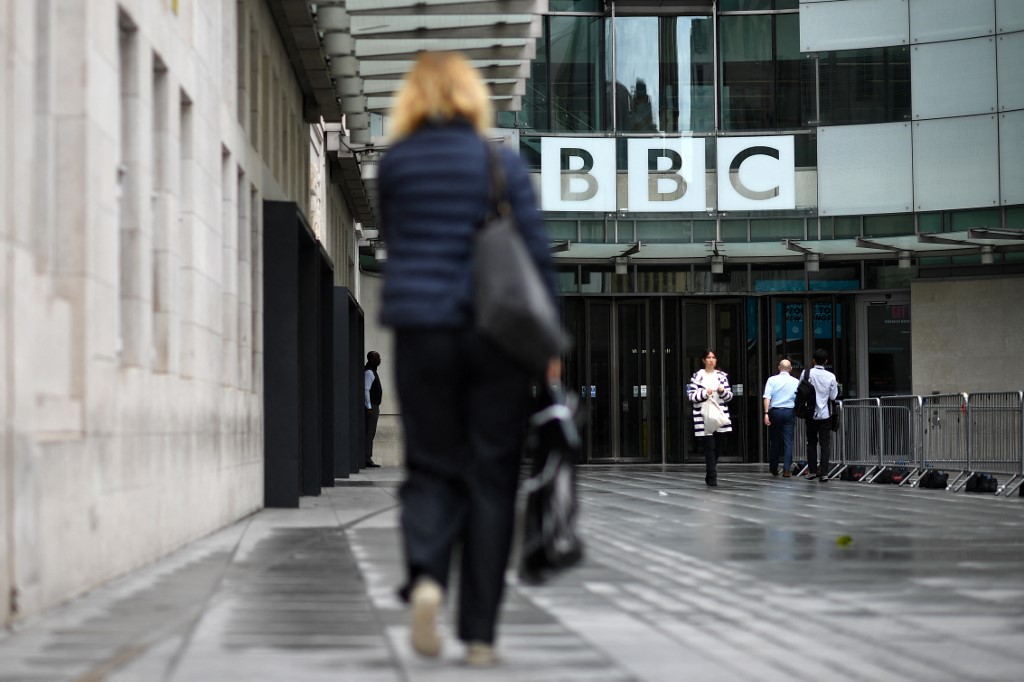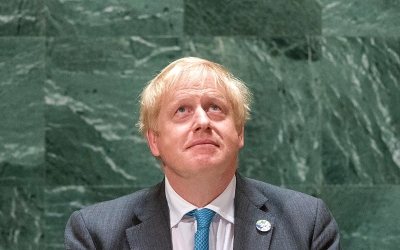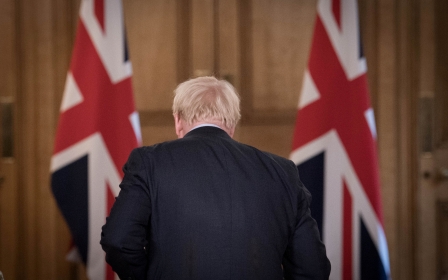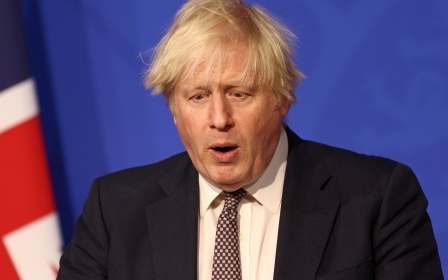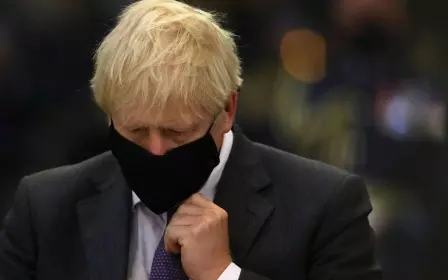How Boris Johnson sabotaged the notion of 'Global Britain'
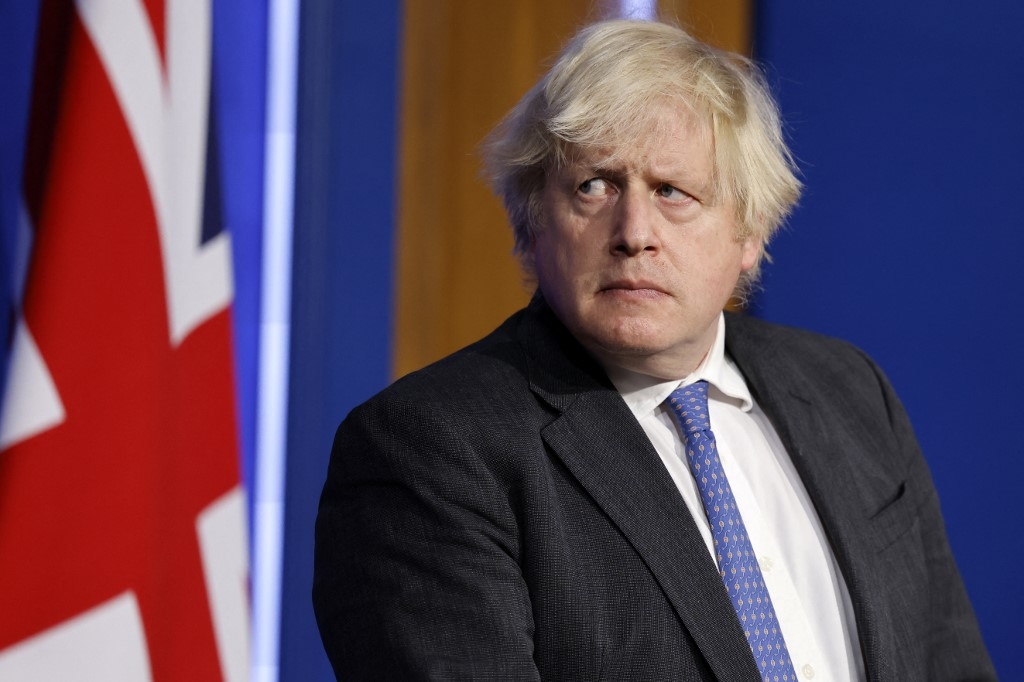
It is increasingly clear that “Global Britain” is a hollow slogan, and the UK government has few intentions of enhancing London’s place in the world.
An integrated review launched this past March offered a blueprint for how post-Brexit Britain might amplify its global influence, touting its position as a “global leader in diplomacy and development” and a “world leader in climate action”. Yet, whether intentionally or not, many of these lofty plans are being shelved, ignored, or sabotaged.
If he and his government are serious about using soft power to amplify London's global role, they need to accept it won't come cheap
The review boasts that the UK, a “soft power superpower”, is the 3rd-ranked soft power in the world, and links this to the wide reach of two institutions: the BBC and the British Council.
Yet, Prime Minister Boris Johnson’s government has repeatedly expressed its desire to cut funding to the former. And this week, it reportedly offered a key education contract to a private contractor, seriously damaging the finances of the latter.
The Johnson government seems intent on sabotaging the very assets it needs to retain and improve Britain’s soft power reach.
American academic Joseph Nye, who developed the notion of soft power, argued that as well as coercing states to do what you want with “hard power” instruments - such as military threats or financial rewards - governments can “attract”’ foreign powers to want the same things as them.
Having policies, culture, and values that foreign governments and their populations admire gives governments “soft power” that can aid a country’s international agenda.
Crafting a global image
The UK has historically punched above its weight in terms of global soft power. British culture, education, language, and, to an extent, values have been admired globally by an array of different governments and peoples. Importantly, this has helped balance against London’s unpopular foreign policies, such as the 2003 Iraq invasion, allowing a positive image of Britain to survive political misadventures.
Yet, this image-making is not accidental. Just as US governments encouraged Hollywood movies to spread a positive image of the US beyond its borders during the Cold War, for decades, UK governments have invested in soft power instruments. But many of these are now under threat.
The British Council is one such major soft power asset. It has more than 100 offices around the world, offering educational and cultural programmes to help build a positive image of Britain abroad. It is not alone; most major international players have their own equivalents, such as Germany’s Goethe Institut, France’s Alliance Francaise, and China’s Confucius Institute.
Yet, the government has dealt a double blow to the Council. First, it cut the budget. When the Foreign Office had its budget slashed, it called on the British Council, which it partly funds, to cut its costs too, leading to 20 offices and 20 percent of its staff being lost. Second, Johnson has reportedly opted to outsource oversight of Britain’s new Turing student exchange scheme, historically run by the British Council, creating an even bigger hole in its finances.
If more cuts and closures follow, the British Council’s influence could well be outstripped by rival Chinese, German or French educational and cultural institutions.
Increasing pressure
Hobbling the British Council is not an anomaly, however, and the Johnson government seems determined to slash at other key soft power institutions. The Foreign Office, one of whose key purposes is to promote Britain’s interests and image abroad, is cutting its staff by 20 percent. The BBC, which the integrated review called the world’s “most trusted broadcaster” - reaching 468 million people every week - is braced for budget cuts, under pressure from a government keen to weaken it.
Aid, one of the most visible soft power tools to promote a state as compassionate and attractive, has famously been cut from 0.7 percent to 0.5 percent of gross national income. Even the UK’s university sector, a soft power institution that attracts foreigners to the UK to study and (hopefully) disseminate their positive experience upon returning home, is suffering from the government’s Brexit policies, with the prospect that it could be excluded from key European funding.
Alongside these budget cuts, the government’s own policies are further undermining Britain’s soft power. The disastrous withdrawal from Kabul is being slowly dissected by the UK establishment; it is increasingly clear that London abandoned some Afghan allies to the Taliban, and much of this was down to government incompetence. Closer to home, the hostility towards immigrants and seeming nonchalance towards tragic drownings in the channel further damages British prestige.
Likewise, it is weakened by the ongoing fallout of Brexit, including petty squabbling with France and the EU, as well as the suggestion that London might break international law over the Northern Ireland protocol.
Added together, Johnson’s Britain looks a long way from being a “soft power superpower”. Indeed, his government’s actions look likely to diminish Britain’s global attractiveness, not enhance it. Yet, this need not be a bad thing. Arguably, the UK today is a global middle power, and “right-sizing” its soft power institutions to align with its equally diminished military and economic reach might be the best way for Britain to build a sustainable foreign policy within its limited means.
However, that is not the “Global Britain” that Johnson promised during and since the Brexit campaign. If he and his government are serious about using soft power to amplify London’s global role, they need to accept it won’t come cheap. To get serious about soft power requires not just talking it up, but stopping the cuts and bad headlines, alongside major investment.
The views expressed in this article belong to the author and do not necessarily reflect the editorial policy of Middle East Eye.
Middle East Eye propose une couverture et une analyse indépendantes et incomparables du Moyen-Orient, de l’Afrique du Nord et d’autres régions du monde. Pour en savoir plus sur la reprise de ce contenu et les frais qui s’appliquent, veuillez remplir ce formulaire [en anglais]. Pour en savoir plus sur MEE, cliquez ici [en anglais].



